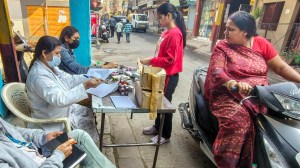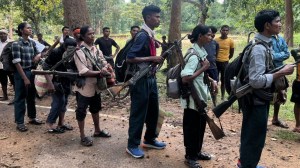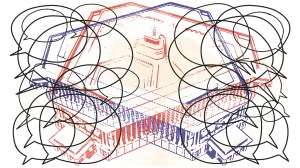For whom the polls toll
The timing of the general election, with its attendant economic and administrative consequences, has led to a great deal of confusion. On...

The timing of the general election, with its attendant economic and administrative consequences, has led to a great deal of confusion. One had assumed that since there was only a caretaker government in place, elections would be held immediately. But the Election Commission, by citing the problem of the general revision of electoral rolls 8212; which can be completed only by the end of July 8212; has put a question mark over this possibility. CEC M.S.Gill8217;s off-the-cuff observation that he would prefer simultaneous elections for Parliament and state assemblies acted as a further damper.
Now elections to the state assemblies are due only from December 1999 to March 2000. The refusal by the chief ministers to recommend the early dissolution of their assemblies evidently means that the parliamentary election will have to be held by itself because it cannot be delayed beyond this October. The Election Commission cannot force the state assemblies to be dissolved earlier.
One of the reason given for delaying thegeneral elections to September/October is stated to be the need to update electoral rolls. Section 21 of the Representation of Peoples Act, 1950 states that unless otherwise directed by the Election Commission the electoral rolls shall be revised before each general elections with reference to the qualifying date which is January of 1999. So that general revision will still not include those who have qualified after January 1999. Of course all of them can get themselves included in the electoral roll before the last date for making nominations Section 23 which need not be before the last week of May if it is decided to hold the election by the last week of June.
Thus the concern for 18-year-olds currently on display need not prevent an early election. Let the political parties do this exercise if they are keen for the inclusion of new names. It is understood that the Election Commission has called a meeting of various political parties. It will be good if a consensus is arrived at about the timing of thegeneral elections. But in case of difference, it is not the Election Commission, but the Central government which has powers to fix the date under the law. This follows from Section 14 of 1950 Act, which provides that for the purpose of holding a general election for constituting a new House of the People, the President shall by notification fix dates as may be recommended by the Election Commission. Thus though the recommendation may be made by the Election Commission, the binding decision has to be made by the President and not the Election Commission.
The Supreme Court has held that President of India, under Section 14 of the 1950 Act, ignites the general election across the nation by calling upon the people to choose their representatives to the Lok Sabha. It is only thereafter that the Election Commission takes over the conduct and supervision of the mammoth enterprise.
Now the President in the context of Article 74 of the Constitution has in the exercise of his functions to act in accordance withsuch advice as is given by the council of ministers. According to the Supreme Court, even when there is dissolution of the House of the People, the President cannot exercise executive power without the aid and advice of the council of ministers.
That this interpretation may permit the cabinet to decide the date of the election which it considers most suitable for itself, is nothing strange or immoral. As a matter of fact Brazier, the British constitutional author has opined that, 8220;The Prime Minister, by convention, now has the right to recommend a dissolution at a time which seems most propitious for him8221;. The ground reality must be accepted that a decision to hold a general election is no less a piece of political decision-making than any other cabinet policy.
There is a tendency to read moral homilies into the desire of political parties for a particular timing to suit their convenience. This is unfair, both on constitutional principles and precedents. Moreover experience has shown that the timing ofelection does not automatically ensure victory. According to Brazier, the modern practice is for the 8220;Prime Minister to consult senior Ministers about a possible election date, then to inform the Cabinet of the chosen date, followed by an audience of the Queen and a public announcement. This preserves the Prime Minister8217;s sole right to select a date8221;.
Incidentally, opinion on the suitability of timing being openly and unabashedly expressed has been the common practice in British parliamentary elections. Norman Tebbit, in his book Upwardly Mobile, recounts how he had analysed the results of the local council election in May 1987 and advised Prime Minister Margaret Thatcher to hold the general election in June 1987. And then it was held according to his advice.
Even a defeated prime minister has the right to fix the date of the general election. Former British prime minister, James Callaghan, wrote in his book, Time and Chance, about how he had lost the vote of confidence by 311 votes to 310. Hewent to acquaint the queen formally of the position and sought the dissolution of the Parliament to be followed by general election in May.
Of course it would be desirable if there was an agreement on dates. But, if there is a difference, constitutionally speaking it is the duty of the government to fix a date and advise the President, who will then direct the issue of necessary notification. The work of the Election Commission comes subsequently as an implementing mechanism to hold the elections, once the government has so decided.
The uncertainty and the undesirability of a caretaker government continuing in power for six months is an unacceptable situation in our democratic set up. People have a right to demand that the period of the caretaker ministry be reduced to the minimum. As Dicey says,8220;No modern constitutionalist will dispute that the authority of the House of Commons is derived from its representing the will of the nation, and that the chief object of a dissolution is to ascertain that thewill of Parliament coincides with the will of the nation8221;.
Law requires about 30 days to complete the whole process. Irrespective of the desires of the various political parties, a healthy precedent must be set: the election process must be completed within six to eight weeks from the date of dissolution of the House of the People. Political parties do not own the country. People have a right to have their own elected representatives at the earliest.
The writer is a former Chief Justice of the Delhi High Court
- 01
- 02
- 03
- 04
- 05































